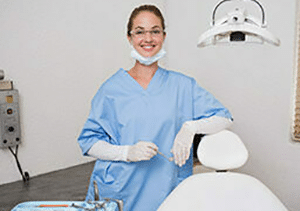However, finding foods to eat after oral surgery, especially ones that are nutritious and filling, can be tough. If you’re wondering, “What can I eat after dental surgery?”, we have got you covered. Below you can find an extensive list of soft and liquid foods you can enjoy while recovering from most types of dental surgery.
Safe Foods To Eat After Dental Surgery
As all dental surgeries and patients are unique, we highly recommend that you always follow the post-surgery care instructions from your dentist. However, the foods below are generally acceptable after dental surgery. You should always be mindful of foods and if any are in question, please consult your physician. Of course, the list below is based on our experience and the experiences of our patients.
- Applesauce: Stay far away from fresh apples after surgery. A wonderful and delicious alternative is applesauce. You can go with store-bought for convenience. Or, make your own by cooking apples until tender and blend together. A dash of cinnamon can really add to the taste as well.
- Avocado: Touted by some as a superfood, avocados are a nutrient powerhouse. They are an excellent source of Vitamins C, K and Potassium. Enjoy them mashed or mixed with another oral surgery food recommendation, like cottage cheese.
- Bananas: Bananas are delicious in any form. They are also soft and enjoyable even post-surgery. Add to your smoothie or yogurt, or simply mash with some peanut butter to enjoy this Potassium boost pain-free.
- Broth: When you need a little more substance, chicken, beef or vegetable broth will work. Homemade bone broth gives you the most nutrients, but store-bought varieties are an easy alternative!
- Cheesecake: A soft piece of cheesecake makes recovering from oral surgery a little more bearable. You can find this on most restaurant menus nowadays or easily make one at home to enjoy.
- Cottage Cheese: This is a great protein source while also easy to eat. Mix with soft fruit or vegetables for a more filling food, or add it to scrambled eggs for an amazing breakfast.
- Custard: Usually made with 4-6 ingredients, custard is an easy sweet treat that you can enjoy post oral surgery. It does take some time and patience, so feel free to grab a pre-made version from the grocery store instead.
- Eggs: Eggs are such an easy protein source that are also easy to eat. While not necessary, you can purchase enriched varieties that give you a boost of omega-3 fatty acids. Feel free to eat your eggs scrambled or over easy after dental surgery.
- Fish: Tuna and salmon are both quick and easy to prepare. The omega-3 fatty acids in these fish may help reduce inflammation. Paired with some soft veggies and an easy carb option, you’ve got a balanced easy-to-eat meal.
- Guacamole: Liven up your avocado with a little salsa and a squeeze of lime. While you may not be eating tacos after dental work, you can enjoy guacamole on eggs, potatoes or straight from a bowl.
- Hummus: Skip the crunchy chips, but feel free to use hummus on tender veggies or soft bread as a great post oral-surgery snack. It is an easy and cheap snack to make at home. Just blend chickpeas, tahini, garlic, lemon and a little olive oil until creamy.
- Ice Cream: One of the best foods to eat after oral surgery is ice cream or frozen yogurt, for its obviously soft texture. Skip the crunchy toppings and allow your ice cream to soften a bit rather than eating it directly from the freezer.
- Jell-O: This is the classic go-to food after oral surgery or tonsil removal. It is cheap, easy to make, and comes in a ton of wonderful flavors.
- Juice: Stay hydrated and replenish nutrients with fresh, 100% fruit or vegetable juice. Flavor options are endless, especially if you have a juicer at home. Sweet fruits like pineapples and pears make sweetening fresh juice without sugar a breeze.
- Macaroni & Cheese: Opt for the soft version with melted cheese rather than baked with crunchy edges.
- Mashed Potatoes: This a comfort food at its finest. Mashed potatoes are a great carbohydrate source and incredibly versatile. Enjoy them with a pat of butter or with sour cream for some added calories (essential to recovery!).
- Oatmeal: Homemade or from the packet, oatmeal is a good food after dental surgery. If the traditional cooking method doesn’t do it for you, try cooking your oats in coconut or almond milk. Adding soft fruit such as mashed bananas brings additional nutrients to this breakfast or snack.
- Peanut Butter: Eat it from the jar or add it to fruit or smoothies. Just remember to avoid the crunchy style.
- Pudding: Reminisce with this traditional after-school snack and enjoy either the packaged individual servings or even make your own at home. Add some cool whip for a treat!
- Sherbet/Sorbet: A snack that tastes good but can also help relieve pain after major dental work. For those who are lactose intolerant or sensitive to dairy, sorbet is a safe alternative to ice creams or sherbets.
- Soups: These are great for an easy burst of nutrients and hydration. Blended is best when it comes to soups post-surgery. Options such as tomato and pumpkin are great but be sure to consume them at a moderate temperature. Soups that are piping hot may bother treatment areas.
- Smoothies: Fresh fruit, cream or yogurt, and some honey will make a nice meal replacement. Adding greens such as spinach allow you to up the nutrients in your glass (or bowl) without changing the taste. Just remember to not use a straw after oral surgery.
- Yogurt: Go for plain or the kind without fruit seeds. Greek yogurt may be your best bet. Not only is it delicious and creamy, but it is also high in zinc. This powerful nutrient promotes the wound healing process.
Types Of Dental Surgeries
Depending on the type of dental surgery you undergo. Your dental office will advise you on post-care requirements. Some of the most common dental surgeries that call for you to adjust your diet – at least for a few days – include:
- Wisdom Teeth Removal: This a very common procedure when molars cause overcrowding or shifting in other teeth and need to be removed.
- Full Mouth Reconstruction: This dental surgery can involve several aspects as it is unique to each smile. The overall purpose is restoration of oral health, rather than solely a cosmetic improvement.
- Dental Implants: These are a permanent restorative dentistry solution to missing teeth – an excellent option for those with excellent bone health.
- Maxillofacial Surgery: In cases of certain jaw-related issues, this surgery helps to realign the jaw and ease pain and discomfort.
- Veneers: These porcelain additions to your natural teeth are a long-lasting option for those wanting to restore their smile.
Recovery Plans from DeJesus Dental Group
As you heal from surgery, you’ll eventually be able to eat more solid foods. We are here to let you know how quickly you’re healing and when you can return to your normal diet.
DeJesus Dental Group, is a dental office in Bridgeport, CT and wants to ensure a pain free recovery from any dental surgery. Every surgery is unique, so we provide individual recommendations and instructions for each patient. We also have a dental practice in Shelton, CT, which is our newest location.
Feel free to contact our Bridgeport-Trumbull Line or Shelton offices with any additional questions or schedule a dental appointment.

